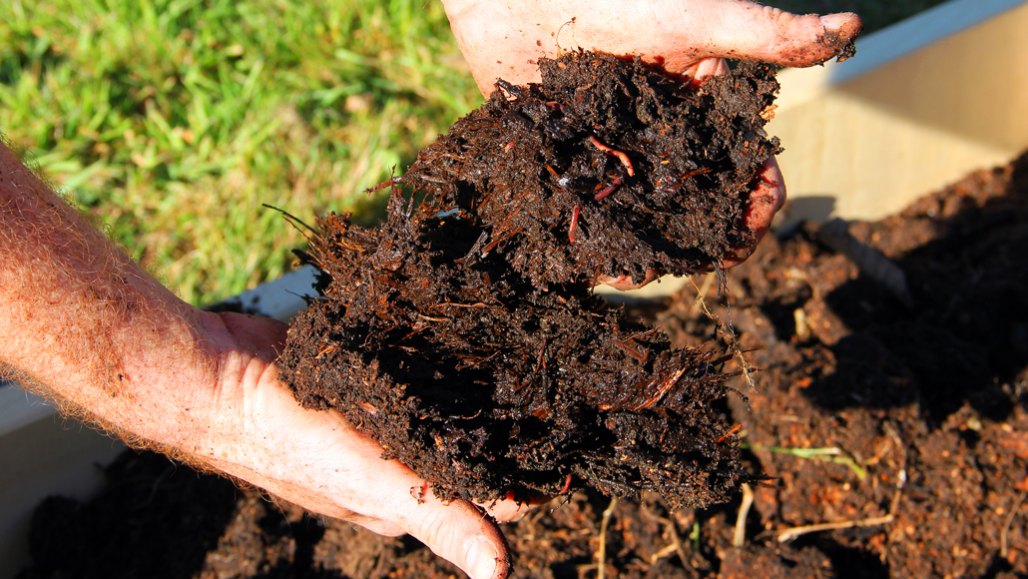Greener than burial? Turning human bodies into worm food
Composting bodies may be better for the Earth than burial or cremation, new data suggest

Microbes can break down organic matter — including human bodies — into soil.
lauraag/iStock/Getty Images Plus
SEATTLE, Wash. — Human bodies make great worm food. That’s the conclusion of an early test with six dead bodies. They were allowed to break down among wood chips and other organic matter.
This technique is known as composting. And it appears to offer a greener way to handle dead bodies. A researcher described her team’s new findings February 16 at the annual meeting, here, of the American Association for the Advancement of Science, or AAAS.
Disposing of human bodies can be a real environmental problem. Embalming of bodies that will be buried in caskets uses large amounts of a toxic fluid. Cremation releases lots of carbon dioxide. But letting Mother Nature break down the bodies creates new, rich soil. Jennifer DeBruyn calls it “a fabulous option.” She is an environmental microbiologist who wasn’t involved in the study. She works at the University of Tennessee in Knoxville.
Last year, Washington state made it legal to compost human bodies. It is the first U.S. state to do so. A Seattle-based company called Recompose expects to start accepting bodies for composting soon.
Lynne Carpenter-Boggs is a research adviser to Recompose. This soil scientist works at Washington State University in Pullman. At a AAAS news briefing, she described a pilot composting experiment. Her team put six bodies into vessels with a bunch of plant material. The vessels were rotated often to help boost decomposition. About four to seven weeks later, microbes in the starting material had broken down all the soft tissues on those bodies. Only parts of skeletons were left.
Each body yielded 1.5 to 2 cubic yards of soil. Commercial processes would likely use more thorough methods to help break down even the bones, says Carpenter-Boggs.
Her group then analyzed the compost soil. It checked for contaminants such as heavy metals, which can be toxic. In fact, Carpenter-Boggs reported, the soil met safety standards set by the U.S. Environmental Protection Agency.
DeBruyn notes that farmers have long composted animal carcasses into rich soil. So why not do the same thing with people? “To me, as an ecologist and someone who has worked in composting,” she says, “it just makes perfect sense, honestly.”
Another plus is that busy microbes in a compost heap put out a lot of heat. That heat kills off germs and other pathogens. “Automatic sterilization” is what DeBruyn calls it. She remembers composting cattle once. “The pile got so hot that our temperature probes were reading off the charts,” she recalls. “And the wood chips were actually scorched.”
One thing not killed by this high heat: prions. These are misfolded proteins that can cause disease. So composting would not be an option for people who had been sick with a prion illness, such as Creutzfeldt-Jakob disease.
It’s unclear how many people will choose human composting for their family’s remains. Lawmakers in other states are considering the method, Carpenter-Boggs said.







